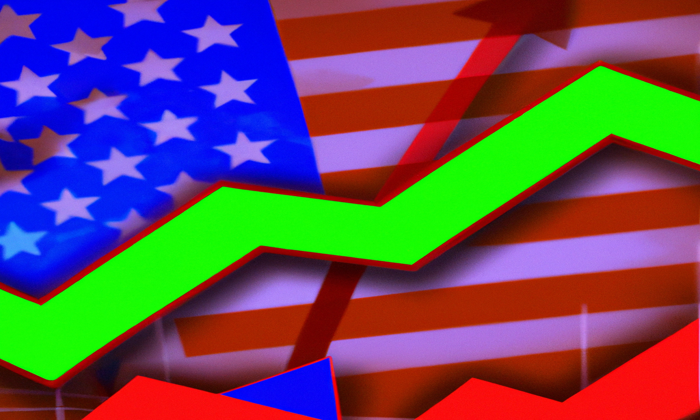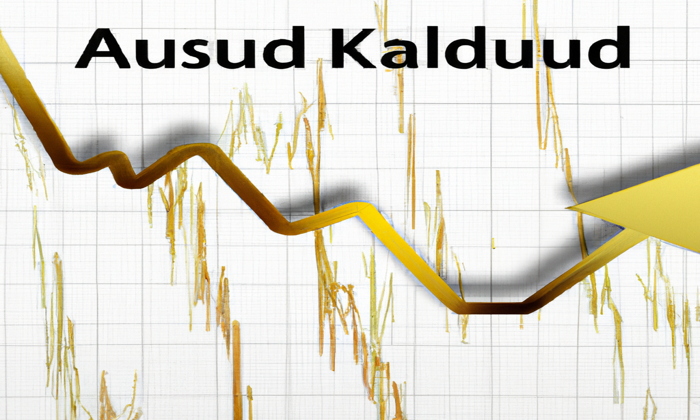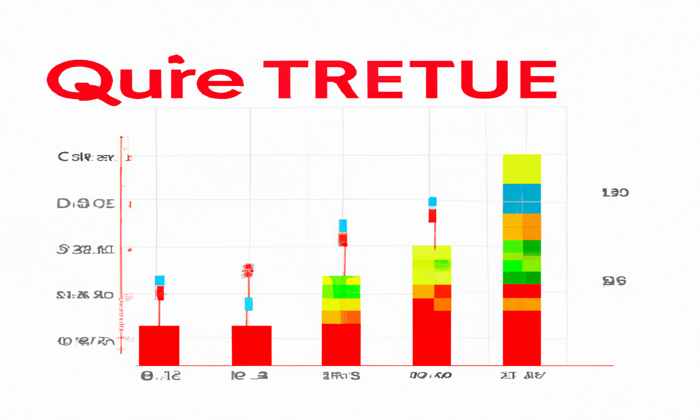U.S.-China trade de-escalation is becoming a focal point for investors as sentiment shifts toward optimism in the stock market. Recent reports indicate a potential easing of the ongoing trade tensions between two of the world’s largest economies, sparking a surge in U.S. stocks. The Dow Jones Industrial Average soared by 1,009 points, or 2.7%, while the S&P 500 and Nasdaq also experienced significant gains on this positive news. Treasury Secretary Scott Bessent’s remarks about the unsustainability of the trade standoff have renewed hopes among traders, bolstering their confidence in future market performance. As investor sentiment improves, equities, particularly those linked to Chinese markets, have started to rebound, highlighting the critical relationship between trade policies and stock market dynamics.
The ongoing resolution of U.S.-China trade disputes is capturing attention as financial markets react positively to signs of reconciliation. As discussions suggest a shift toward reduced trade hostilities, the American stock market has witnessed a remarkable upswing. The notable rise in key indexes such as the Dow Jones Industrial Average and the S&P 500 is a testament to how geopolitical stability can influence investor confidence. The recent statements from Treasury Secretary Scott Bessent have encouraged traders, suggesting that a more cooperative economic environment may be on the horizon. This renewed investor optimism reflects broader shifts in market sentiment, with interconnected global economies keenly observing these developments.
The Impact of U.S.-China Trade De-escalation on Investor Sentiment
The recent surge in U.S. stock markets highlights how investor sentiment is closely tied to geopolitical developments, particularly regarding U.S.-China trade relations. As Treasury Secretary Scott Bessent indicated that the ongoing trade tensions are ‘unsustainable,’ investors reacted positively, driving the Dow Jones Industrial Average up by 1,009 points. This rebound suggests that clarity about trade policies can significantly influence market performance, encouraging investors to engage more aggressively in equities, especially those linked to China.
Investor confidence often hinges on the perceptions of future economic stability. With the potential for de-escalation in trade tensions, the S&P 500 and other major indexes gained momentum, underscoring how easing uncertainties can lead to bullish trading patterns. Market participants are continuously monitoring statements from key figures in the government, like Bessent, to gauge the likelihood of significant changes in trade policies that can affect corporate profits and overall economic health.
Stock Market Reactions: Dow Jones and S&P 500 Performance
The day’s stock market performance was marked by significant gains, especially within the Dow Jones Industrial Average and the S&P 500. After experiencing substantial losses due to rising trade tensions and concerns over Federal Reserve policies, the recovery seen on this day exemplifies the volatility and responsiveness of U.S. equities to news surrounding trade relations. The 2.7% increase in the Dow not only reflects recovery but also indicates robust buying by investors responding to the anticipation of an easing in trade disputes.
Furthermore, the S&P 500’s increase of 2.4% signals a general optimism among investors regarding the stability of U.S. markets in relation to trade policies. As market participants digest the implications of potential negotiations, the stock market’s upward movement could set the stage for sustained positive momentum. This reinforces the relationship between regulatory announcements, market sentiment, and investment strategies, particularly in the face of previously adverse conditions.
Overcoming Trade Tensions: The Road Ahead for Investors
While the recent market surge suggests a positive turnaround, investors must remain mindful of the ongoing uncertainty in U.S.-China relations. Treasury Secretary Bessent’s remarks that negotiations have yet to start emphasize the need for patience and strategic planning. The potential for long-lasting impacts on sectors closely tied to trade policies, including technology and manufacturing, means investors should be prepared for fluctuations as developments unfold.
As the administration balances discussions not only with China but also with other nations like India, the complexity of U.S. trade policy may yield mixed results. Investors should closely follow evolving narratives around trade agreements, as any signs of protracted negotiations could dampen market enthusiasm. Nevertheless, the recent positive market response illustrates how improvements in investor sentiment can drive stock performance, presenting both challenges and opportunities in the current economic landscape.
The Role of Financial Institutions in Navigating Trade Uncertainties
In turbulent times marked by trade uncertainties, financial institutions play a pivotal role in guiding investors’ perspectives. Institutions like JPMorgan host discussions that inform stakeholders about potential scenarios, shaping the overall investor sentiment. With insights from influential figures, institutions can provide valuable analyses that help investors make informed decisions amidst fluctuating market conditions influenced by factors like U.S.-China trade relations.
Moreover, financial firms are often at the forefront of monitoring market trends and providing recommendations that align with current geopolitical climates. As investors become more vigilant, they look to these institutions for guidance on which sectors to prioritize based on trade developments. Ultimately, the interplay between trade policies and financial institutions significantly impacts how investors navigate the complexities of the stock market.
Tech Stocks and Trade: A Closer Look at Sector Performance
Technology stocks have historically been some of the most affected by trade tensions, particularly in the context of U.S.-China relations. As negotiations progress, these stocks often reflect broader market sentiment, responding sharply to news regarding tariffs, regulations, and trade agreements. The recent spike in technology-related equities amidst hopes for trade de-escalation illustrates the sector’s sensitivity to geopolitical dynamics, where investor actions are often driven by expectations of future profitability.
In this context, major tech companies, especially those with substantial investments in China, stand to benefit significantly from easing tensions. As evidenced by the performance of indexes like the Nasdaq Composite, which increased by 2.5%, the resilience of the tech sector amidst fluctuating policies emphasizes its critical role in the U.S. economy. Investors should remain attentive to sector-specific news and market reactions as these dynamics continue to unfold.
Cryptocurrency Market Dynamics Amidst Economic Shifts
The cryptocurrency market is often perceived as a hedge against traditional financial uncertainties, making its dynamics particularly interesting during discussions of U.S.-China trade policies. The recent increase in global cryptocurrency market capitalization to $2.85 trillion suggests that investor sentiment may also be shifting towards alternative investment avenues amid traditional market fluctuations. Notably, assets like Bitcoin have seen dramatic movements, with trading around $91,340, indicating speculative interest that can be influenced by economic narratives.
As regulatory debates surrounding cryptocurrencies evolve alongside trade discussions, investors in this space must navigate a complex landscape of financial innovation and risk management. The impact of U.S.-China trade relations on the broader crypto market remains a crucial element that traders should consider, as shifts in investor confidence can lead to significant volatility. Understanding these interconnected influences can guide investment strategies in the evolving financial ecosystem.
Market Analysts Weigh in on Future Trade Policies
Market analysts play an essential role in interpreting the implications of potential U.S.-China trade de-escalation on economic performance. Their assessments can provide insights into how specific sectors, such as technology or manufacturing, might respond to changes in trade policy. With the Dow and S&P 500 flashing signs of recovery, analysts are optimistic yet cautious about the long-term effects of negotiations and the potential for renewed tensions down the line.
As the discussions around tariffs and trade agreements continue, analysts will closely monitor economic indicators and investor behavior to gauge sentiment across various markets. This analysis is critical, as it helps shape expectations for equities and informs investment strategies moving forward. In a rapidly evolving economic environment, the input from market analysts ensures that investors are equipped with the knowledge needed to make strategic decisions.
Trading Strategies in Response to Economic News
U.S.-China trade relations have become a significant consideration in formulating effective trading strategies. As investors react to news regarding potential de-escalation, strategies must adapt swiftly to capitalize on market movements. Investors often analyze correlations between significant market events and key economic indicators to make informed choices regarding entry and exit points in their trading activities.
A proactive approach, where investors remain informed about ongoing negotiations and economic forecasts, is essential in today’s fast-paced market. By integrating insights from market trends, investor sentiment, and future projections, traders can enhance their chances of achieving favorable outcomes despite the volatility stemming from trade disputes. The evolution of trading strategies in such an environment is vital for securing returns and mitigating risks.
The Long-term Outlook on U.S.-China Relations and Stock Markets
The long-term outlook for U.S.-China relations will undoubtedly influence stock market trajectories. Analysts predict that while short-term gains may be fueled by optimism about trade negotiations, the sustainability of such gains depends on the resolution of fundamental trade issues. The evolving landscape suggests that investors must be prepared for unexpected shifts that could arise from either side, emphasizing the need for a diversified investment approach.
Investors should also keep an eye on how other geopolitical influences might interact with U.S.-China relations, thereby affecting markets and overall economic growth prospects. As the broader financial climate changes, a thorough understanding of the interplay between U.S.-China policy decisions and domestic economic indicators will significantly contribute to successful investment strategies.
Frequently Asked Questions
What impact will U.S.-China trade de-escalation have on the U.S. stock market?
U.S.-China trade de-escalation could significantly boost the U.S. stock market by alleviating investor concerns over tariffs and trade barriers. A more stable trade environment may enhance investor sentiment, leading to increased investments in U.S. equities like the Dow Jones Industrial Average and S&P 500.
How does the Dow Jones Industrial Average react to U.S.-China trade tensions?
The Dow Jones Industrial Average often reflects shifts in investor sentiment caused by U.S.-China trade tensions. Positive news regarding potential trade de-escalation can lead to sharp increases in the index, as seen with its 1,009-point jump during recent speculations of easing trade disputes.
What are the signs that U.S.-China trade de-escalation is underway?
Indicators of U.S.-China trade de-escalation include remarks from key officials like Treasury Secretary Scott Bessent, who described the trade standoff as ‘unsustainable.’ Market reactions, such as increased stock prices and higher investor sentiment, also signal progress towards easing tensions.
How can U.S.-China trade de-escalation influence the S&P 500 index?
U.S.-China trade de-escalation can lead to an uptick in the S&P 500 index as reduced trade tensions typically encourage corporate profitability and investment. As trade barriers lower, companies may see improved access to markets, thus boosting their stock performance within the S&P 500.
What are the potential risks of U.S.-China trade de-escalation for investors?
While U.S.-China trade de-escalation may improve market conditions, risks remain such as the uncertainty of negotiations and the potential for delays in formal agreements. Investors should remain cautious, as trade policy dynamics can still significantly impact the U.S. stock market.
How does investor sentiment affect the response to U.S.-China trade de-escalation?
Investor sentiment plays a crucial role during U.S.-China trade de-escalation. Positive developments can lead to increased confidence and investment, while any signs of stagnation or renewed tensions can quickly alter market trajectories, impacting stocks like those in the Dow Jones and S&P 500.
Can U.S.-China trade de-escalation affect Tesla’s stock prices?
U.S.-China trade de-escalation may positively influence Tesla’s stock prices, especially given the company’s strong ties to the Chinese market. Easing trade tensions could enhance investor sentiment towards Tesla, helping it recover from declines despite facing challenges in demand and leadership controversies.
What role does the U.S.-China trade relationship play in the global stock market dynamics?
The U.S.-China trade relationship is pivotal to global stock market dynamics. Trade de-escalation between these two economic giants often leads to increased investor confidence worldwide, impacting indices such as the Dow Jones Industrial Average and S&P 500, as well as stock markets in other countries.
How do economists assess the likelihood of U.S.-China trade de-escalation?
Economists often assess the likelihood of U.S.-China trade de-escalation based on statements from government officials, market reactions, and economic data. Indicators such as improving investor sentiment and constructive dialogue between the two nations suggest that de-escalation may be achievable.
| Key Points | Details |
|---|---|
| Stocks Recovery | U.S. stocks surged, with the Dow Jones gaining 1,009 points (2.7%) as investors speculated about improved trade relations. |
| Remarks by Treasury Secretary | Scott Bessent noted that the trade situation is ‘unsustainable’ and a de-escalation is likely, which fueled market optimism. |
| Market Reaction | Stocks linked to China rose significantly, including ETFs that track Chinese large-cap and MSCI indices, both increasing around 3%. |
| Negotiation Timeline | Bessent mentioned that negotiations have not officially started and a final agreement may take years, indicating ongoing uncertainty. |
| Impact of Political Statements | Previous sell-off was linked to President Trump’s criticisms of Fed Chair Powell, showing how political statements affect market confidence. |
| Company Performance | Tesla shares increased by 5% ahead of earnings but remain down 40% for the year amid declining demand and controversies surrounding its CEO. |
| Crypto Market Update | The global cryptocurrency market capitalization reached $2.85 trillion with Bitcoin trading around $91,340, reflecting a 4.30% increase in just one day. |
Summary
U.S.-China trade de-escalation is crucial in today’s economic landscape, as indicated by the recent surge in U.S. stock markets driven by investor optimism. With indications from Treasury Secretary Scott Bessent about the potential easing of trade tensions, the markets reacted positively. Although caution remains due to the uncertain timeline and ongoing political challenges, the upcoming discussions could pave the way for improved economic relations between the U.S. and China.
Recent optimism surrounding U.S.-China trade de-escalation has significantly fueled stock market activity, with traders eager for signs of resolving long-standing trade tensions. On Tuesday, the U.S. stock market experienced a remarkable rebound, highlighted by a staggering 1,009-point surge in the Dow Jones Industrial Average, equivalent to a 2.7% increase. This upward momentum, reflected in the S&P 500 and Nasdaq Composite as well, showcases a shift in investor sentiment following Treasury Secretary Scott Bessent’s remarks on the unsustainable nature of the current trade impasse. With equities tied to trade relations with China showing promising gains, the air of optimism has returned to Wall Street. As investors closely monitor developments, the potential for a mutual agreement continues to impact trading strategies and expectations across the board.
The recent fluctuations in stock prices can be closely linked to the anticipation of a thaw in trade relations between the United States and China, often referred to as a trade resolution. Market movements have been largely influenced by discussions around mitigating trade conflicts, with notable rebounds in key indexes like the Dow Jones and S&P 500. Investor outlook has shifted positively in light of hints from officials about potential negotiations, illustrating how closely intertwined global trade dynamics are with market performance. Consequently, financial analysts are keeping a vigilant eye on developments that could redefine the landscape of international commerce. Overall, the sentiment surrounding the easing of trade rifts continues to play a crucial role in shaping investor strategies and market reactions.














